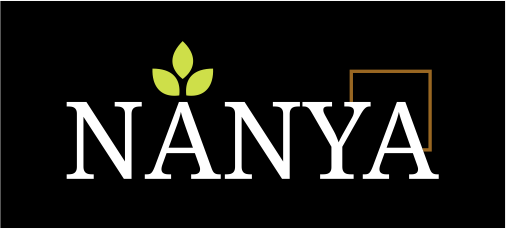Market Overview and Growth Projections
The global healthcare facility management sector stands at an unprecedented growth trajectory, with market analysts projecting remarkable expansion over the next decade. The healthcare facilities management market size is expected to reach approximately USD 837.40 billion by 2034, up from USD 326.10 billion in 2024. The market is growing at a solid CAGR of 9.54% from 2025 to 2034.
This significant growth represents more than just numbers; it reflects a fundamental shift in how healthcare institutions approach operational excellence, patient care delivery, and infrastructure sustainability. The market expansion signals increasing recognition that effective facility management directly impacts patient outcomes, operational efficiency, and overall healthcare quality.
Current Market Valuation and Future Outlook
The current healthcare facility management landscape demonstrates robust financial health with substantial room for expansion. Starting from a base of USD 326.10 billion in 2024, the market’s projected growth to USD 837.40 billion represents an increase of over 156% within a single decade.

This growth trajectory indicates that healthcare organizations worldwide are prioritizing facility management as a strategic investment rather than a peripheral operational cost. The consistent compound annual growth rate of 9.54% suggests sustained demand across multiple healthcare sectors, from acute care hospitals to specialized treatment centres.
Key Growth Drivers in Healthcare Facility Management
Several critical factors fuel this market expansion, creating a perfect storm of opportunity for facility management service providers. The increasing complexity of modern healthcare delivery systems demands sophisticated facility management approaches that can handle everything from basic maintenance to advanced technology integration.
Patient expectations have evolved significantly, with healthcare consumers demanding not only excellent medical care but also superior facility experiences. This shift requires healthcare institutions to invest in comprehensive facility management solutions that enhance patient satisfaction while maintaining operational efficiency.
The aging global population contributes substantially to market growth, as healthcare facilities must expand capacity and upgrade infrastructure to meet increasing demand. This demographic trend particularly affects long-term care facilities, rehabilitation centres, and specialized geriatric care institutions.
Regulatory Compliance and Environmental Standards
Need to comply with environmental and regulatory norms, supportive government policies drive significant portions of market growth. Healthcare facilities face increasingly stringent regulations regarding safety protocols, environmental impact, and operational standards.
Modern facility management must address complex regulatory requirements spanning infection control, waste management, energy efficiency, and accessibility compliance. These regulatory pressures create substantial demand for professional facility management services capable of navigating complex compliance landscapes.
Environmental sustainability has emerged as a crucial factor, with healthcare institutions seeking facility management partners who can implement green building practices, reduce energy consumption, and minimize environmental impact while maintaining superior patient care standards.
India’s Role in the Global Healthcare Infrastructure Expansion
India presents exceptional opportunities within the global healthcare facility management market. The hospital industry in India demonstrates remarkable growth potential, with significant infrastructure development projects underway across major metropolitan areas and tier-2 cities.
By end-user industry, commercial facilities accounted for 40.11% of the India facility management market size in 2024, whereas healthcare facilities are advancing at a 7.69% CAGR to 2030. This statistic highlights India’s healthcare facility management sector’s strong performance relative to other industries.
Government initiatives supporting healthcare infrastructure development create additional market momentum. This reflects a 9.78% increase from the previous allocation of Rs. 90,958 crore (US$ 10.47 billion) in FY25. These increased healthcare allocations translate directly into facility management opportunities as new hospitals and healthcare centers require comprehensive operational support.
Major Indian cities including Bangalore, Hyderabad, Pune, and Ahmedabad are experiencing significant healthcare infrastructure expansion, creating substantial demand for professional facility management services. These urban centers require integrated facility management solutions that can support complex healthcare operations while meeting international quality standards.
Technology Integration and Modern Healthcare Facilities
Digital transformation drives significant portions of facility management market growth, with healthcare institutions investing heavily in smart building technologies, IoT-enabled maintenance systems, and data-driven operational optimization tools.
Modern healthcare facilities require sophisticated technology integration covering everything from patient monitoring systems to environmental controls, security systems, and energy management platforms. Effective facility management must coordinate these diverse technological elements while ensuring seamless patient care delivery.
Predictive maintenance technologies are revolutionizing healthcare facility management, enabling proactive equipment maintenance that reduces downtime, extends asset lifecycles, and minimizes disruption to patient care services.
Investment Opportunities and Market Dynamics
The healthcare facility management market’s growth creates substantial investment opportunities for service providers, technology companies, and healthcare institutions. The India home healthcare market size was valued at USD 8.8 billion in 2022 and is expected to expand at a compound annual growth rate (CAGR) of 19.29% from 2023 to 2030.
This home healthcare growth complements traditional facility management services, creating integrated service opportunities that span institutional care and community-based healthcare delivery models.
Private healthcare investments continue expanding across India, with major healthcare groups planning significant capital expenditures for facility expansion and modernization. These investments create direct demand for comprehensive facility management services.
Why Professional Facility Management Matters More Than Ever?
Healthcare facility management encompasses far more than basic maintenance and cleaning services. Modern healthcare institutions require integrated solutions covering clinical engineering, environmental services, security management, food services, waste management, and energy optimization.
Patient safety depends directly on effective facility management, from maintaining sterile environments to ensuring reliable power systems for critical care equipment. Professional facility management providers bring specialized expertise that healthcare institutions cannot efficiently develop internally.
Cost optimization through professional facility management enables healthcare institutions to focus resources on core medical services while maintaining superior facility standards. Experienced facility management partners deliver economies of scale, specialized expertise, and proven operational frameworks.
The Future of Healthcare Infrastructure Management
Looking toward 2034, healthcare facility management will become increasingly sophisticated, integrating artificial intelligence, predictive analytics, and automated systems to optimize operational efficiency while enhancing patient experiences.
Sustainability will play an increasingly important role, with healthcare institutions seeking facility management partners capable of implementing comprehensive environmental management programs that reduce operational costs while meeting regulatory requirements.
The market’s projected growth to USD 837.40 billion represents not just expansion but evolution toward more strategic, technology-enabled facility management approaches that support healthcare institutions’ core missions while delivering measurable operational improvements.
Healthcare facility management will continue evolving from a support function to a strategic differentiator, with leading healthcare institutions recognizing that superior facility management directly impacts patient satisfaction, clinical outcomes, and organizational reputation.
Strong facility management is the backbone of every healthcare space. Talk to Nanya today to see how our expertise can make your hospital operations safer, more efficient, and future ready. Contact us to start the conversation.
Source : https://medicalbuyer.co.in/healthcare-facilities-management-market-to-hit-usd-837-40b/
Frequently Asked Questions (FAQs)
1. What factors are driving the healthcare facility management market’s growth to USD 837.40 billion by 2034?
The market growth is primarily driven by increasing regulatory compliance requirements, environmental sustainability mandates, aging populations requiring expanded healthcare infrastructure, rising patient expectations for superior facility experiences, and government support for healthcare infrastructure development. The consistent 9.54% CAGR reflects sustained demand across multiple healthcare sectors globally.
2. How is India’s healthcare facility management market performing compared to other sectors?
India’s healthcare facility management sector is advancing at a 7.69% CAGR through 2030, demonstrating strong growth momentum. While commercial facilities currently account for 40.11% of India’s facility management market, healthcare facilities are experiencing rapid expansion driven by government healthcare budget increases of 9.78% and significant infrastructure investments in major cities like Bangalore, Hyderabad, and Pune.
3. What role does regulatory compliance play in healthcare facility management market expansion?
Regulatory compliance is a major growth driver, as healthcare facilities must meet increasingly stringent environmental and safety standards. Facility management providers must navigate complex regulations covering infection control, waste management, energy efficiency, and accessibility compliance. This regulatory complexity creates substantial demand for specialized facility management expertise.
4. How does technology integration impact modern healthcare facility management?
Technology integration is revolutionizing healthcare facility management through IoT-enabled maintenance systems, predictive analytics, smart building technologies, and automated operational optimization tools. These technologies enable proactive maintenance, reduce equipment downtime, extend asset lifecycles, and minimize disruption to patient care while improving operational efficiency
5. What opportunities exist for facility management companies in India’s growing healthcare market?
India presents exceptional opportunities with significant healthcare infrastructure expansion in major metropolitan areas and tier-2 cities. Government healthcare budget allocations have increased to Rs. 90,958 crores, creating substantial demand for comprehensive facility management services. The home healthcare market alone is growing at 19.29% CAGR, complementing traditional institutional facility management opportunities and creating integrated service possibilities.





































